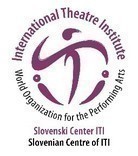A round table, SC ITI
House of Guests: Sustainable Theatre – the Challenge of Our Time
Oder Cultural Institute, SC ITI, Prešeren Theatre Kranj
Schedule
| 02.04.2025 | at 18:00 | Kovačnica |
About the event
Cultural Institute Oder/Slovenian Centre ITI and The Week of Slovenian Drama Festival, Kranj, Slovenia
Partners: Theatre Green Book, Opera Europa network
Guests:
- Iphigenia Taxopoulou (Greece), founder and General Secretary of the European theatre network mitos21, associate at Julie's Bicycle (UK), sustainability consultant, lecturer, and educator
- Lučka Kajfež Bogataj, renowned Slovenian climatologist, full professor at the Faculty of Biotechnology, Head of the Chair for Agrometeorology, and member of the Intergovernmental Panel on Climate Change (IPCC) in Geneva
- Laura Sedgwick (UK), producer at Theatre Green Book and associate producer with independent producers Smith & Brant Theatricals
- Adam Bureš (Czech Republic), sustainability expert at the Czech National Theatre in Prague, lecturer at the Prague Theatre Academy, and member of the sustainability forum within the Opera Europa network
- Mike Van Graan (South Africa), playwright and producer in the field of social justice
- Tamara Bračič Vidmar (Slovenia), Producer, Head of Public Relations and Head of Greenstage Project for Slovenian activities
Moderator: Tatjana Ažman, dramaturge, head of the Slovenian Centre ITI and Director of the Cultural Institute Oder/Stage, Ljubljana.
The event will be hybrid and conducted in English. The Festivals Web and Social Media pages will announce possible lifestreaming.
Our starting point, the book "Sustainable Theatre: Theory, Context, and Practice" by Iphigenia Taxopoulou, a leading expert in culture and environmental sustainability, is currently a foundational work that has been in development for over three decades. The author has approached her research from numerous angles, exploring essential topics such as international perspectives, the climate and environmental impacts on cultural policy throughartistic leadership, organizational ethics, infrastructure, activities, individual and institutional practices of sustainable creation, education, touring, and international collaboration. She also sheds light on how the climate crisis affects narrative—both on stage and in a broader sense.
What is the role of art at a time when numerous concepts, including creativity itself, are confronting the climate and environmental crisis, the collapse of values, wars, and political upheavals? Why should we even care about the role of the artist and art in the context of global environmental and political changes that increasingly impact the lives of each of us? What is the right balance, what are the biases, and how significant is the challenge of the concept of sustainability? We will pose these and many other questions to seek answers, open up thinking, and support the practice of sustainability in theatre within our cultural space.


